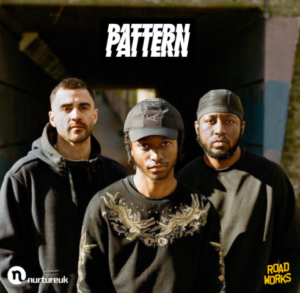We are delighted to be working with RoadWorks LDN as part of our Violence Reduction Unit (VRU) programme.
RoadWorks LDN aims to tackle social exclusion and reduce serious youth violence by supporting young people to navigate their social worlds safely, and communicate their experiences through writing and in conversations. They deliver a variety of workshops that explore British youth culture, social theory, English literature and language, and current affairs.
After reading ‘Cut Short: Youth Violence, Loss and Hope in the City’, the recent book from RoadWorks LDN founder Ciaran Thapar, nurtureuk’s Associate Consultant Trainer Siobhán Garrett saw an opportunity to provide additional support to the schools taking part in the London VRU programme.
“In particular, the themes of shame, rejection and powerlessness that surface repeatedly in Ciaran’s book resonated with the work of the London VRU team. Nurturing Schools are the antidote to these experiences; relational safety, nurture and compassion that pull children and families into connection with schools, rather than driving them further away, is what our training and support programme is all about.”
Each school on the programme received a copy of the book, and Ciaran led a networking event that enabled schools to reflect on his story, and the stories of the young men in his book.
Ciaran’s work inspired the London VRU team to explore a partnership programme that would allow for necessary and important work to happen directly with young people who have been deeply affected by London’s youth violence epidemic.
The team developed the Pattern Programme, in partnership with Ciaran Thapar, Franklyn Addo, and Demetri Addison from RoadWorks LDN, which will provide a weekly space for students to take part in guided critical discussions covering topics such as social media, storytelling, justice, authority, and education. The programme content is inspired by Ciaran’s book, and will encourage discussion, reading, and writing as useful and enjoyable activities for understanding social issues.
The pilot project will run for 6 weeks in the spring term, and aims to improve participants’ relationships and experiences of school, as well as building their confidence and competence in creative writing. By combining contemporary British urban youth culture with academic subjects such as Philosophy, Sociology and English Literature, the programme will help participants to develop critical thinking, problem solving, decision making, and conversational skills.
The programme aims to create a positive ‘pattern’ for participants who are deemed to be at risk of exclusion, and all workshops will be delivered with flexible and trauma-informed youth work practice. This will allow for a blend of structured and informal conversation, and ultimately provide a relaxed, enjoyable and stimulating intervention for students who otherwise find school and classroom-based learning challenging.


